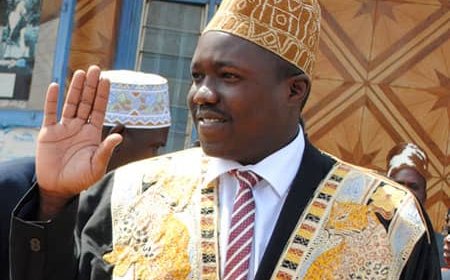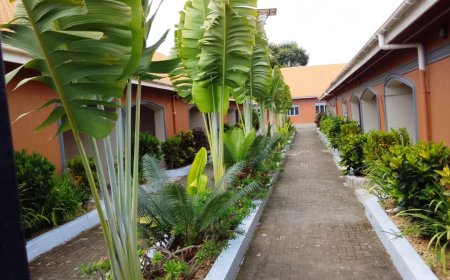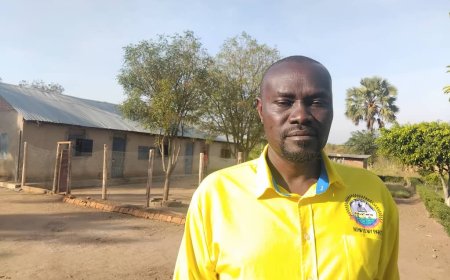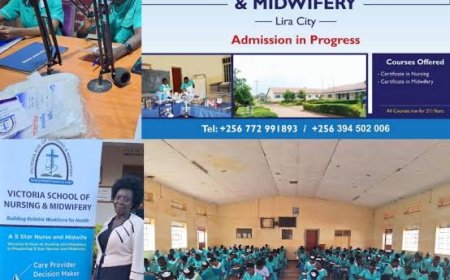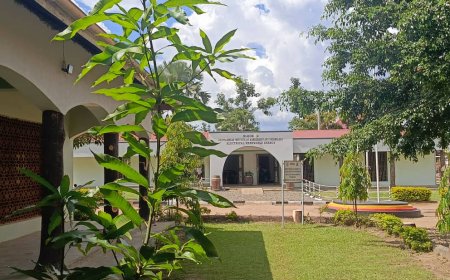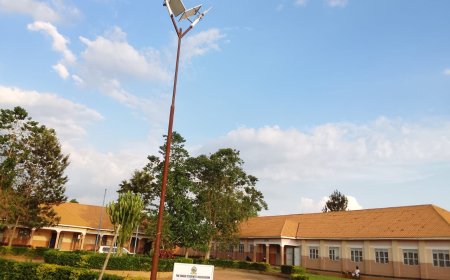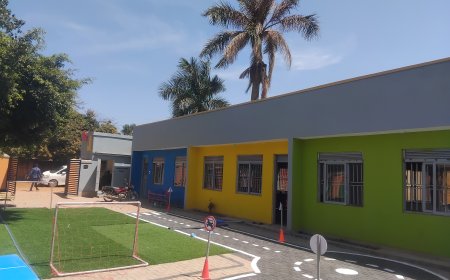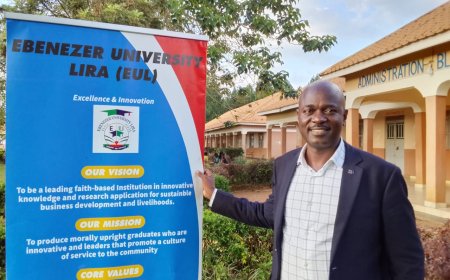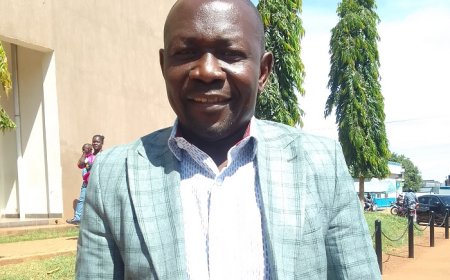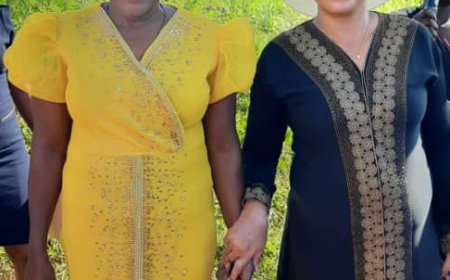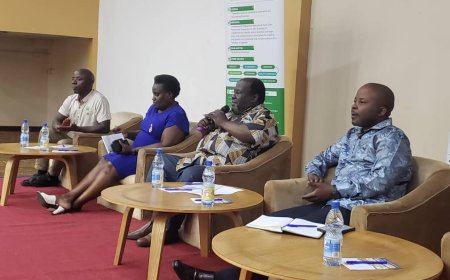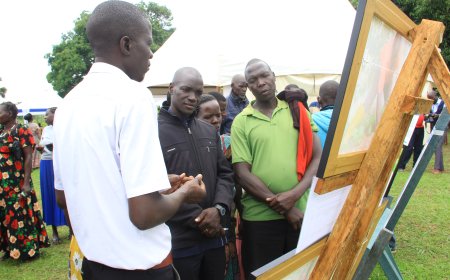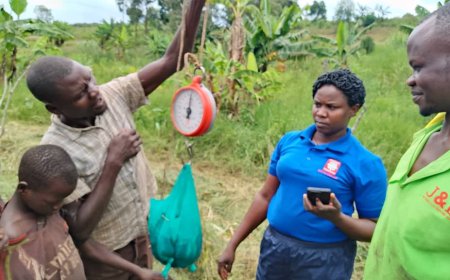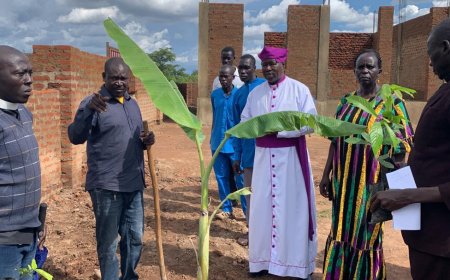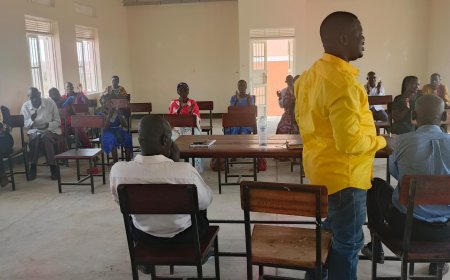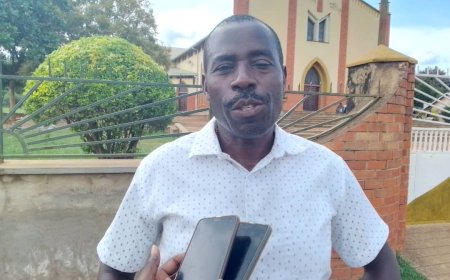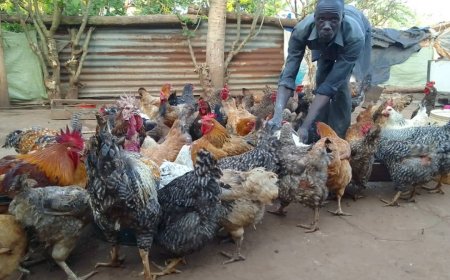The Sweet Promise of Cocoa: A New Hope for Omoro Farmers in Northern Uganda
The talk around cocoa farming was palpable at a recent Climate Smart Agriculture exhibition in Pida. The event, organized by Infonile and Palladium, brought farmers together to share their experiences and learn from one another.
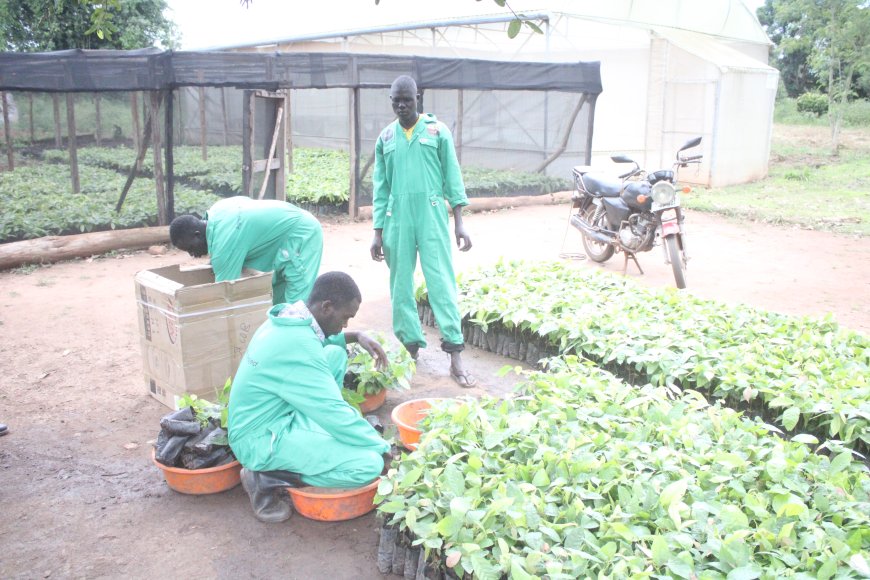
https://studio.youtube.com/video/stRwfp1FJ38/edit
The Sweet Promise of Cocoa: A New Hope for Omoro Farmers in Northern Uganda
23/09/2025
By Robert Mone
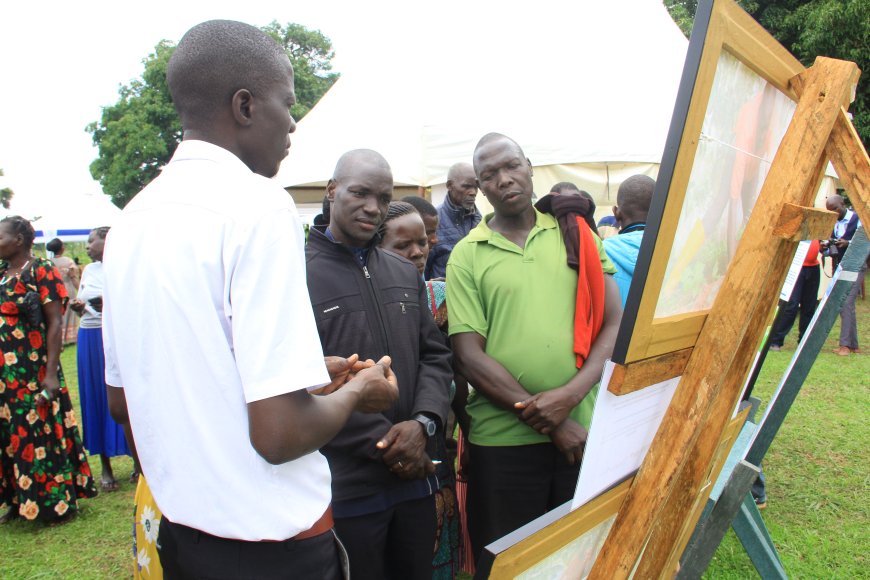
Omoro District Rev. Solomon Obita (C) during Climate Smart Agriculture Media Exhibition in Omoro District
In the quiet village of Onyona-Pida, located in Omoro district – Northern Uganda, a revolution is taking root. For years, communities in this region have grappled with extreme poverty. But now, a new crop is offering a sweet, promising solution. This crop is cocoa.
The talk around cocoa farming was palpable at a recent Climate Smart Agriculture exhibition in Pida. The event, organized by Infonile and Palladium, brought farmers together to share their experiences and learn from one another.
For many, it was a moment of inspiration, a chance to see first-hand how cocoa could change their lives.
Rev. Solomon Obita who oversee Methodist church in Acholi Sub region was among the attendees. On the day of the exhibition, Rev. Obita arrived early from Omoro’s neighbouring district of Nwoya, eager to meet the cocoa farmers and understand a crop that the government has been promoting for its economic benefits.
"I had to go for this farmer field day as early as 9 a.m. on that day specifically to meet those who have planted cocoa so that I could understand something about it," Obita says.
Inspired by what he learned, Rev. Obita has now identified one acre of land to begin planting cocoa next year. He plans to start with half an acre, but he is worried that the seedlings are a bit expensive at 1,000 Uganda shillings each.
His goal is to plant 200 seedlings in his first season.Rev. Obita is so convinced of cocoa’s potential that he has taken it upon himself to spread the word.
He is encouraging his fellow Christians and clan members in Nwoya district to adopt cocoa farming, calling it an environmentally friendly crop with high economic value. He plans to share this message with Methodist faithfuls across the Acholi sub-region and even with members of the Uganda, Sudan, and South Sudan Pension conference, where he serves as chairman.
https://www.datawrapper.de/_/JOikq
From Abandoned Gardens to Flourishing Farms
Rev. Obita is not alone in his enthusiasm. Another farmer, Caroline Awori from Pida village, shared her own success story with this publication.
After seeing photos of a fellow farmer's well-managed cocoa garden, Awori was motivated to clear her own piece of land, which she had abandoned due to challenges with pests and stray goats.
The photos from Francis Obali Jwee farm inspired Awori to adopt use of organic manure and fertilizers as well as opt for more biological practices to control pests.
"I decided to clear my cocoa garden that I had abandoned," Awori narrates, explaining that she planted groundnuts to keep the field clean and trimmed her bananas to allow the cocoa plants enough space.
Awori's success has not gone unnoticed. She says five people have approached her at her retail shop and church in Koch Goma Town Council to learn more.
She now plans to expand her cocoa garden to one-acre next year.
Challenges on the Horizon

Cocoa at Adaganii farm at Ireda Ward, Lira City council
Despite the growing interest, challenges remain, Monica Lucky Lakica, the parish chief of Lwala parish, worries about market access and the availability of quality seedlings as more farmers enter the business.
She fears that without proper support, cocoa farmers may struggle to sell their produce, much like those who have benefited from the Parish Development Model.
"Looking at how farmers who benefited from the Parish Development Model are struggling to sell their agricultural produce, this may replicate to the cocoa farmers," Lakica says.
Quinto Kilama, the chairperson of the Nen Kwiri Cocoa Farmers Association, echoes these concerns.
While over 15 farmers have registered with the association, they fear a lack of adequate training to meet international standards and a shortage of good-quality seedlings.Kilama highlights a major issue: the long distance to their current seedling supplier –Adaganii Limited in Lira City.
This close to 150-kilometer journey often leads to delays in getting the seedlings, which can be detrimental during planting season.
Private Sector Steps Up
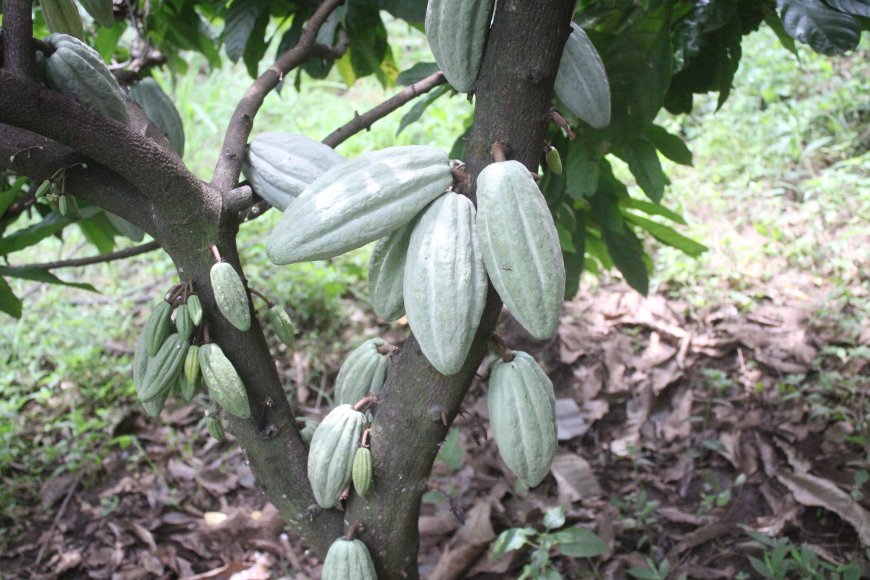
Cocoa Seedlings at Adaganii nursery bed in Lira
Lakica is calling upon the private sector players to help famers access quality seeds, seedlings and provide better market linkages since agriculture is the bark borne of the region and the country.
At the moment, it seems some players are heeding to Lakica’s call.
Adaganii Limited is a Lira based company currently promoting Cocoa growing in Northern Uganda. It is aware of the numerous challenges the farmers are facing and is working to address them.
Peter Paul Okullo, the company’s managing director, says they plan to produce one million seedlings next year to meet the rising demand. They have also established satellite nurseries in Minakulu and Akalo to serve different districts and prevent farmers from buying substandard seedlings from unregistered dealers.
The satellite nursery in Minakulu targets to supply farmers in Oyam, Nwoya and Omoro districts, while the one at Akalo is for farmers in Kole, Kwania and Apac districts.
In Omoro district where farmers like Awori live, Adaganii plans to create a demonstration farm in Onyona village to serve as a temporary solution to the lack of extension workers. Okullo notes that the company currently relies on only three extension officers to serve the vast regions of Lango, Acholi, Teso, and parts of Karamoja. He adds that the company is open to partnerships with any organization willing to provide technical staff.With the right support, cocoa could become a major force in Uganda's economy.
As of August 2024, cocoa was the country's third-largest export after gold and coffee – according to data from the Uganda Bureau of Statistics
https://www.datawrapper.de/_/JOikq/
The growing interest in Omoro suggests that this sweet crop is not just a source of income but a symbol of renewed hope for a community determined to build a more prosperous future.
What's Your Reaction?









